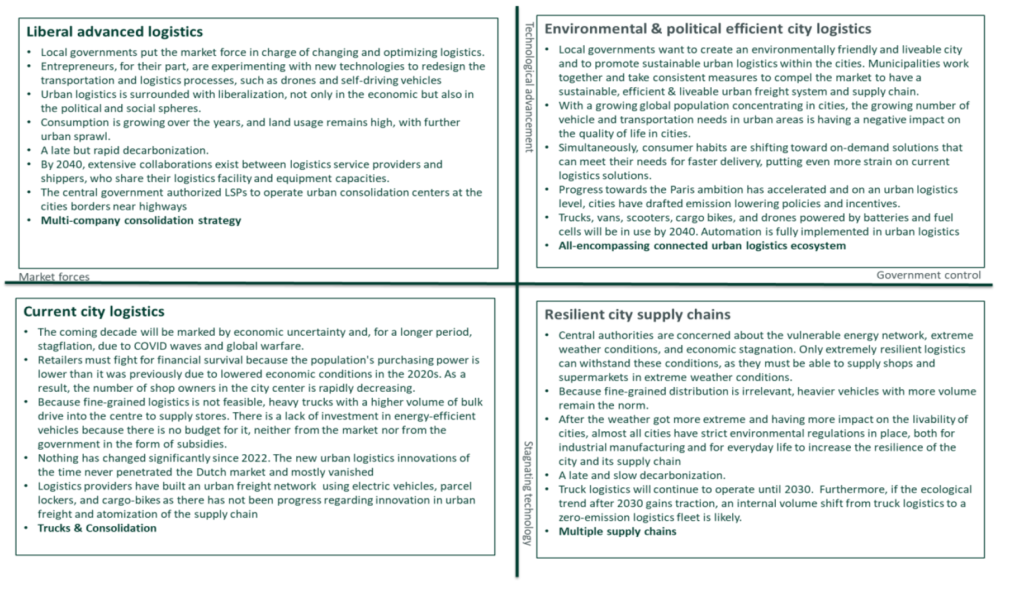Urban logistics is characterized by a high degree of freight flow fragmentation, the employment of various delivery methods, and the use of various vehicle capacities. Urban logistics is essential for inhabitants’ quality of life, both negatively and positively. It plays a prominent economic role with significant advantages for multiple stakeholders along complex, dynamic supply chains. These trends influence how the city and the supply chain will develop over the coming decades.
Getting a clearer vision of city logistics by exploring (economic, societal, and environmental) trends and different new forms of transportation with exploratory scenarios benefits a wide range of stakeholders. With this vision, municipalities can adapt their urban logistics policy strategy and logistical companies & developers their investments in supply chains and infrastructure. TU Delft student Karel Beukema wrote his M.Sc. thesis about an exploratory scenario analysis: the future of urban logistics in 2040.

Rather than sharing their experiences, cities mimic each other’s freight legislation. Because the stakes of the various players in the issue are not directly recognized, obligations for urban freight are passed to other stakeholders, and project expectations are unclear. And they do not feel responsible for the solution. Changes in logistic stakeholders’ conduct are hindered by their passive and awaiting attitudes toward one another. Technological and economic developments have impacted urban freight leading to a growing scale of consumption and production.
Four distinct scenarios for exploring the future of urban logistics were developed. The four scenarios give an overview of the future of urban logistics and the organization of the inner city supply chain in 2040. The developed vision 2040 for urban logistics has shown significant changes regarding the use of technologies and infrastructure, the design of services and delivery concepts, market organization and cooperation, planning and regulation, and, finally, behavior.
Overall, in 2040, we will not be worse off in terms of CO2 emissions than in the current scenario, as climate change will pressure increasing emission reduction regulation, even in scenarios 1 and 3, where market forces dominate. Scenario 2 might be the best future outcome for increasing the city’s liveability but is less suitable for logistical businesses due to heavy urban logistics regulations. Scenario 4 might be the worst for firms due to increased cost, economic headwinds, and city inhabitants due to reduced living conditions caused by extreme weather. This scenario could be averted if there is a drastic reduction in emissions to stop climate change.
The development of innovative urban distribution methods and driving forces can substantially impact the future urban logistics system. These scenarios, implications, and recommendations should assist businesses, policymakers, and investors in imagining future developments, exploring relevant uncertainties, and studying the impact for their merit.
Source: TU Delft
